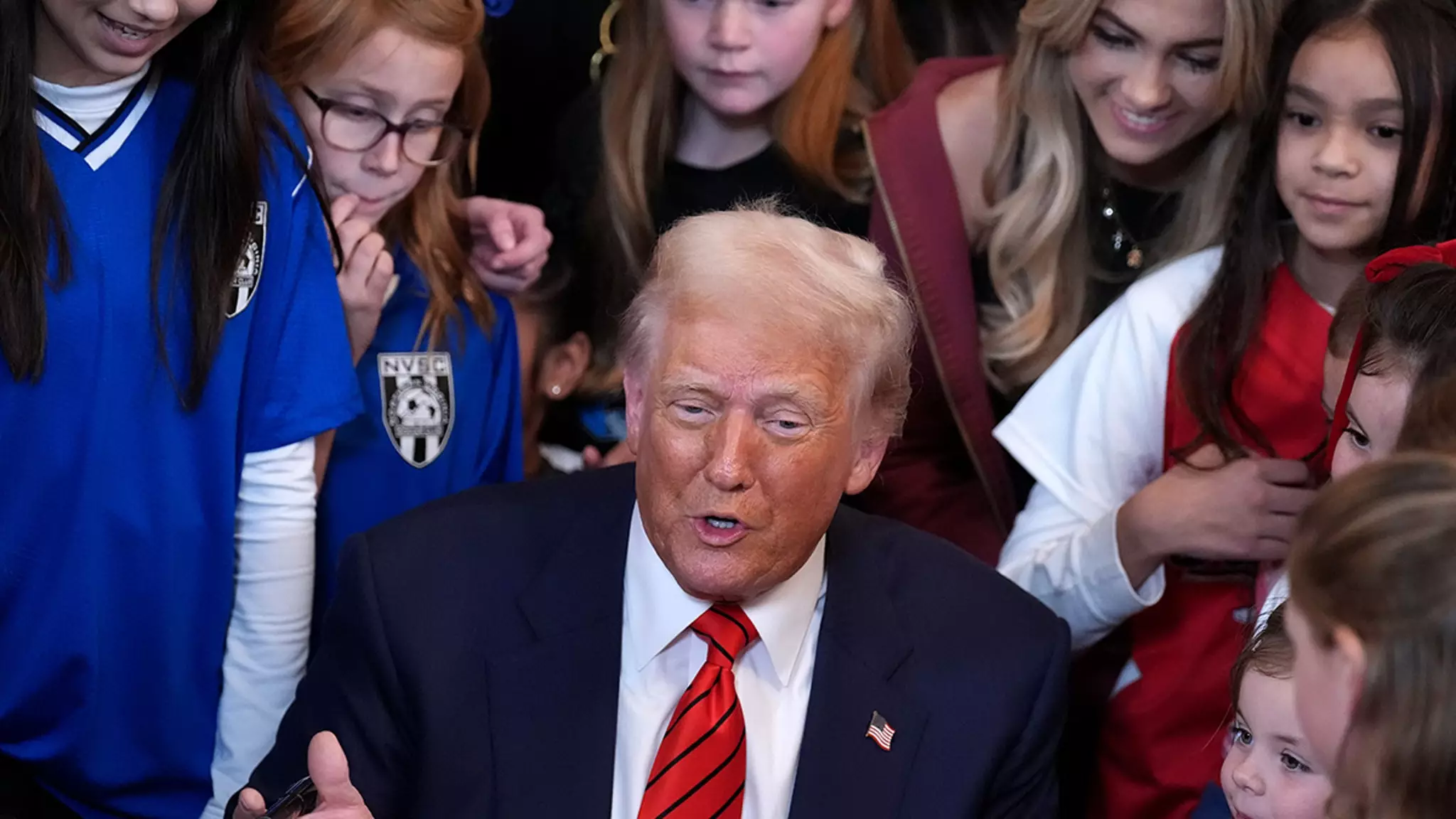In a decision that has stirred significant debate, former President Donald Trump recently signed an executive order aimed at excluding transgender women from competing in women’s sports. This initiative, dubbed the “Keeping Men Out of Women’s Sports” directive, signifies a bold move by the Trump administration to redefine participation standards in athletics, contending that it preserves the integrity and fairness of women’s competitions. The announcement, made during a public ceremony at the White House, has elicited both fervent support and strong opposition, reflecting the broader societal divisions surrounding gender identity and sports.
During the ceremony, Trump emphasized the authority of his administration in enforcing this new policy. He communicated a sense of finality in his remarks, stating, “It’s going to end, and it’s ending right now.” This assertion resonated with his supporters present at the event, including prominent figures like Riley Gaines, a former NCAA swimmer who has vocalized her discontent with the participation of transgender athletes in women’s events. The executive order appears to align with Trump’s broader political strategy, appealing to a base that prioritizes traditional gender norms and views athletic competition through the lens of biological sex.
The provisions of Trump’s order extend to the educational sector, particularly via a mandate aimed at empowering the Department of Education to withdraw federal funding from institutions that permit transgender participation in sporting events. This measure raises critical questions about the future of sports programs in schools and colleges nationwide. Opponents argue that such a policy threatens the foundation of inclusivity that athletics has come to embody, potentially alienating transgender youth from essential social interactions and opportunities for personal development that sports provide.
Criticism of the Order: Voices of Dissent
While Trump’s initiative generated applause from supporters at the event, it has incited significant backlash from advocacy groups and human rights organizations. Kelley Robinson, the President of the Human Rights Campaign, criticized the executive order, suggesting it could lead to increased harassment and discrimination against transgender individuals. Resistance to the policy contends that it overlooks the values inherent in sports—teamwork, dedication, and perseverance—while perpetuating an environment of exclusion and stigma for marginalized communities.
The implications of Trump’s executive order extend beyond the immediate realm of sports, embedding themselves in a broader cultural and political discourse about gender identity and rights. The discussion surrounding the inclusion of transgender athletes in gender-segregated sports highlights significant societal challenges regarding acceptance and equality. Advocates for both sides of the debate find themselves grappling with the complexities of fairness, safety, and the right to compete.
Trump’s executive order marks a significant, albeit contentious, shift in the landscape of women’s sports and raises essential questions about identity, inclusivity, and fairness. As the dialogue continues, the ramifications of such policies will undoubtedly shape the future of athletics and the societal views surrounding them.

Leave a Reply